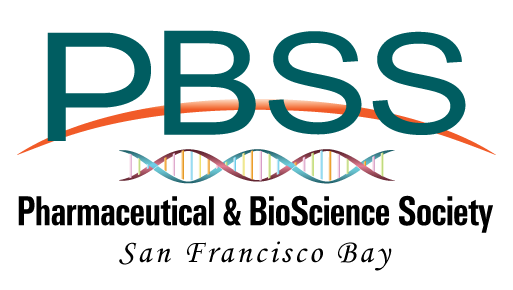
|
Symposium
[Postponed due to COVID-19] No More Undruggables: Unconventional Approaches for Drug Discovery and Design - prodrugs, PROTACS, fragment-based design, directed evolution and beyond
Speakers:
Carolyn Bertozzi (Stanford), Michelle Arkin (UCSF), Adrian Gill (Revolution Medicines), Michael Keiser (UCSF), Mark Smith (Stanford), Maureen Hillenmeyer (Hexagon Bio), Ian Seiple (UCSF), Daniel Erlanson (Frontier Medicines), Chaitan Khosla (Stanford)
Organizers:
Toni Kline, PhD
Date:
2020-05-22
Time:
8:30-17:00 Pacific Time
Registration fee:
(USD): Regular: $195; Academic: $125; Students & Unemployed: $35
Location:
SF Bay Area: Foster City Crowne Plaza
Major Sponsor:
Vendor show vendors registered to date:
(2)Applied StemCell; WuXi Apptec
Registration: http://www.PBSS.org
Registration deadline:2020-05-20
(it will close sooner if the seating cap is reached)
About the Topic
Proteins function in a physiological environment of access barriers, regulators, facilitators, and partners. In many therapeutic ecologies, single drug-single target does not apply. To target these dynamics new modalities of both drug and drug discovery are being explored. This Symposium will highlight some emerging ones.
Part A. Beyond Target Binding
Classic drug-target interactions are typically viewed as a non-covalent association of the small molecule drug with a single protein receptor, active, or allosteric site; this binding blocks protein reaction with the native agonist or substrate, and the offending signal is quenched. The limitations of this vision become clear when in vitro results do not translate into in vivo efficacy.
Engineering the small molecule to accommodate and exploit the complexities of ADME-- and systems biology-- is now being accomplished in a number of creative ways: Much as we once naively talked about “junk DNA” and “undruggable” targets, we now have the insight and tools to understand the therapeutic potential embedded in complex biological systems.
Part B. Towards the rest of that chemical space.
Library (high-throughput or more modest) screening, and modifications of known drugs have been engines of the discovery process for a century. Along with combinatorial chemistry and computer assisted drug discovery (CADD), these methods have brought thousands of molecules to the clinic. But a certain ”drug-like” sameness often appears across therapeutic groups. Perhaps for good reason (ADME, PK properties are optimized according to established conventions), but this sameness is at the expense of exploring truly novel chemical space. Happily, the discovery process is not static, and technologies are emerging to identify less obvious and less familiar-looking molecules. In the oncology and antibiotic spaces, drugs arising from these methods might encounter less resistance.
Topics & Speakers:
- LYTACs/PROTACs: Carolyn Bertozzi, PhD, Professor of Chemical & Systems Biology and Radiology, Stanford University
- Protein-protein interactions: Michelle Arkin, PhD, Co-director, Small Molecule Discovery Center (SMDC), Professor, Pharmaceutical Chemistry, UCSF
- Allosteric inhibitors: Adrian Gill, PhD, VP Medicinal Chemistry and CMC, REVOLUTION Medicines
- Systems pharmacology and forward polypharmacology: Michael Keiser, PhD, Professor, Institute for Neurodegenerative Diseases, UCSF
- Discovery at the academia/biotech borderline: Mark Smith, PhD, Head, ChEM-H Medicinal Chemistry Knowledge Center, Stanford University
- AI meets fermentation: Maureen Hillenmeyer, PhD, CEO, Hexagon Bio
- Access to complex natural products: Ian Seiple, PhD, Professor in Residence, Cardiovascular Research Institute, UCSF
- Fragment based drug discovery: Daniel Erlanson, PhD, VP of Chemistry, Frontier Medicines
- Directed evolution: Chaitan Khosla, PhD, Professor of Chemical Engineering and Chemistry, Stanford University
2024-04-26, [In-Person] Oncology Clinical Dose Optimization in Light of FDA Project Optimus
|
2024-05-06, [In-Person] Human Mass Balance and Metabolite Profiling Studies: Strategies, Technical Approaches, Regulatory Guidance, Applications and Case Studies
|
2024-05-13, [Free Online] Highlights of 2023 FDA Drug Approvals
|
2024-05-21, [In-Person] Nonclinical Safety Studies for IND and NDA Filing for Small Molecules: Nuts, Bolts and Best Practices
|
2024-05-30, [Free Online Workshop] Career Transition for Research Scientists: Career Overview, Project Management and Regulatory Affairs (jointly with BioPharmaPM and RAPS-SF)
|
2024-06-13, [In-Person] CMC Strategies and Activities for IND and NDA Filing for Small Molecules: Nuts, Bolts and Best Practices
|
2024-06-20, Alzheimer's Disease: untangling what we thought we knew and future Precision Medicine Diagnostics and Therapeutics
|
2024-07-24, [Free Online] The Science and Stories of Promising Biotech Startups: Symposium No.6
|
2024-09-10, [In-Person] Rethinking Translational PK/PD and Human Dose Projections for Novel Therapeutic Modalities: Covalent Inhibitors, PROTACs, Molecular Glues, ADCs, Ocular and Neuro delivery, Vaccines, Bispecifics, Cell and Gene Therapies
|
2024-09-20, [In-Person] Non-clinical safety assessments of biologics and novel modalities for IND/NDA Filing: Nuts, Bolts and Best Practices
|
2024-10-10, [In-Person] Regulatory Global Submission: Strategies and Best Practices for FDA, EMA and PMDA
|
|
Ads (in random order)
Submit a Text Ad
($250 for 2 months)
Lena Biosciences
Predictive toxicology. Intrinsic & idiosyncratic drug-induced liver injury. Mitochondrial toxicity in a drug metabolism-competent model.
|
Alturas Analytics, Inc.
Expert Regulated & Non-Regulated LC-MS, GC-MS bioanalytical & PK/TK analysis of small & large molecules in any matrix. Discovery through phase IV.
|
Lena Biosciences
Predictive toxicology. Mitochondrial toxicity in a drug metabolism-competent model with active transporters. Intrinsic & idiosyncratic DILI.
|
Submit a Text Ad
|